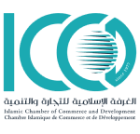Economic Unions in Islamic Countries
INTRODUCTION
The growth in the volume and diversity of global trade has led to the creation of more opportunities, and thus economic interconnection between different entities. The Chambers of Commerce proved their effectiveness in developing the volume of global trade as entities that work to support cooperation and coordination between the parties concerned. Therefore, there has become an urgent need to establish joint chambers of commerce and economic unions “what are usually called economic blocs”.
The term “economic blocs” emerged in the world during the twentieth century after World War II, as a result of the desire of many countries to join integrated regional blocs, or what is known as economic integration, in its traditional sense, to achieve economic and political stability. In this context, Europe is the birth of the largest regional bloc in the world, which is the European Union, which was established based on the Maastricht Agreement signed in 1992, which emerged from the European Economic Community agreement in 1957. Since then, a number of regional economic blocs have emerged in Asia, the two Americas, and Africa.
The economic bloc aims to enhance economic integration among a group of countries, through liberalizing trade exchange between them, coordinating financial and monetary policies, and achieving a kind of protection for their national products. It also aims to reduce the cost of development by reducing import costs and achieving optimal exploitation of available resources. Improving the investment climate by expanding the market circle and unifying or converging investment facilities, incentives and exemptions, as well as coordinating economic policies to meet the economic problems and crises.
The types of economic integration are as follows:
1- Free trade zone
2- Customs Union
3- Common Market
4- Economic Union
5- Complete Economic Integration
This publication comes within the framework of the Islamic Chamber’s strategy, which aims to create awareness, disseminate knowledge and to shed light on economic organizations and unions in the Islamic world, as well as the joint chambers of commerce. The objective is to clarify the extent of their effectiveness in achieving the economic integration, which has today become means of development, which represents a guarantee for enhancing the well-being and economic security of people – regardless of how different the concepts and methods expressing this means are.
These unions have been able – throughout their journey – to achieve important achievements, through developing channels of cooperation in various commercial, industrial, agricultural, technological and service fields.
Accordingly, in this issue we will present lists of economic unions and joint chambers in Islamic countries, in terms of their origin, member states, objectives, areas of work, and contact information.
- Regional, International Organizations and Joint Chambers of Commerce
-
-
-
Foundation:
The Cooperation Council for the Arab States of the Gulf – or also known as the Gulf Cooperation Council or the Cooperation Council for the Arab Gulf States – is an Arab regional political, economic, military, and security organization, made up of six Arab countries that overlook the Arabian Gulf and constitute the majority of the area of the Arabian Peninsula, which are: The Kingdom of Saudi Arabia, the Sultanate of Oman, the United Arab Emirates, the State of Kuwait, the State of Qatar, and the Kingdom of Bahrain.
The Cooperation Council for the Arab States of the Gulf was established on May 25, 1981, during the meeting held in the Emirati capital, Abu Dhabi, and the former Emir of Kuwait, Sheikh Jaber Al-Ahmad Al-Sabah, was the initiator of the idea of its establishment.
The Council is headquartered in the Saudi capital, Riyadh. - Member States:
United Arab Emirates
Kingdom of Bahrain
Kingdom of Saudi Arabia
Sultanate of Oman
State of Qatar
State of Kuwait
- Objectives:
The basic objectives of the Cooperation Council are as follows:Achieving coordination, integration and interconnection between member states in all fields to achieve their unity.
Deepening and strengthening the ties, connections and aspects of cooperation that exist between the peoples of member states in various fields.
Establishing similar systems in various fields, including the following matters:
Economic and financial affairs.
Commercial affairs, customs and transportation.
Educational and cultural affairs.
Social and health affairs.
Media and tourism affairs.
Legislative and administrative affairs.
Promoting scientific and technical progress in the fields of industry, mining, agriculture, aquatic resources and livestock.
Establishing scientific research centers, creating joint projects, and encouraging private sector cooperation for the benefit of the peoples of member states. - Organizational Structure
– The Supreme Council:
It is the supreme authority of the Cooperation Council, and is composed of the heads of member states, and its presidency is rotating according to the alphabetical order of the names of the countries. The Council meets in a regular session every year, and special sessions may be held based on the invitation of any member state and the support of another member. At the Abu Dhabi summit in 1998, the Supreme Council decided to hold a consultative meeting between the previous and subsequent summits. The Council’s meeting is considered valid if two-thirds of the members are present, each of whom has one vote, and its decisions on the issues are issued unanimously by the member states present and participating in the vote, and by a majority on procedural matters.
Advisory body of the Supreme Council:
It is composed of thirty members, five members from8 each member state who are selected with experience and competence for a period of three years. The Commission is responsible for studying what is referred to it by the Supreme Council.
The Commission for the Settlement of Disputes:
The dispute settlement body formed by the Supreme Council is affiliated with the Supreme Council in each case according to the nature of the dispute.
2-The Ministerial Council:
The Ministerial Council consists of the foreign ministers of member states or their representative ministers, and its presidency is for the state that assumed the presidency of the last regular session of the Supreme Council. The Council holds its meetings once every three months, and may hold extraordinary sessions based on the invitation of any member and the support of another member. Its meeting is considered valid if two-thirds of the member states are present.
The powers of the Ministerial Council include – among other things – proposing policies, developing recommendations aimed at developing cooperation among member states, and working to encourage and coordinate existing activities among member states in various fields. Decisions taken in this regard are referred to the Ministerial Council, which submits them – by recommendation – To the Supreme Council whatever requires its approval. The Council also undertakes the task of preparing for the meetings of the Supreme Council and preparing its agenda. Voting procedures in the Ministerial Council are similar to those in the Supreme Council.
3-The General Secretariat:
The duties of the General Secretariat are to prepare studies to enhance cooperation, coordination and integration in joint Gulf action plans, programs and projects, prepare periodic reports on the work of the Council, follow up on the implementation of decisions, prepare reports and studies requested by the Supreme Council or the Ministerial Council, prepare for meetings and prepare meeting agendas. The Ministerial Council, draft resolutions, and other tasks stipulated in the statute of the Cooperation Council.
According to the new organizational structure of the General Secretariat – which was approved by the Ministerial Council, which was held on November 25, 2014 – the administrative body of the General Secretariat consists of the following;Secretary-General appointed by the Supreme Council for a period of three years, renewable once.
Five Assistant Secretaries General for political affairs and negotiations, economic and development affairs, military affairs, security affairs, and legislative and legal affairs. They are appointed by the Ministerial Council upon nomination by the Secretary-General for a period of three years, subject to renewal.
Four Heads of Specialized Sectors for political affairs, negotiation affairs, economic affairs, human affairs and the environment, directly linked to the relevant Assistant Secretaries General. They are appointed by the Ministerial Council upon nomination by the Secretary-General for a period of three years, subject to renewal.
Five Heads of Missions for Foreign Offices, directly linked to the relevant Assistant Secretaries General. They are appointed by the Ministerial Council upon nomination by the Secretary-General for a period of three years, subject to renewal.
Five General Directors for the following sectors: Office of the Secretary-General, Coordination and Follow-up, Strategic Planning and Institutional Excellence, Media and Strategic Communication, Financial and Administrative Affairs, Information Affairs, and Protocol, and they are appointed by the Secretary-General.The current Secretary-General is:
H. E. Dr. Nayef Falah Mubarak Al-Hajraf - Work Fields:
Economic cooperation
Human and environmental fields
Security cooperation
Joint military action
Cultural and media cooperation
Judicial and legal cooperation
Gulf Customs Union
Foreign Policy
Cooperation in the fields of accounting and financial auditing
Cooperation in the field of zakat
Regional cooperation and economic relations with other countries and groups
Economic relations with countries and international economic groups
Strategic dialogues with countries and regional groups
Cooperation with the Republic of Yemen - Contact Information:
Tel: 96611482777700
E-mail:
Website: https://www.gcc-sg.org/ar-sa/Pages/default.aspx
Headquarters: Riyadh – Kingdom of Saudi Arabia
-
Foundation:
-
-
Regional, International Organizations and Joint Chambers of Commerce
The Arab Mediterranean Free Trade Agreement (Agadir Technical Unit):

The Agadir Declaration was launched in Morocco in May 2001, in which Jordan, Tunisia, Egypt, and Morocco announced their desire to establish a free trade area among themselves, with the encouragement of the European Union.
The four founding countries signed the Agadir Agreement on February 25, 2004, in Rabat – Kingdom of Morocco. The agreement then entered into force on July 6, 2006 after the completion of its ratification procedures by the four countries.
The actual implementation of the agreement began on March 27, 2007, after customs ports in the four countries were notified of the start of implementation.
Member States:
Four Mediterranean Arab countries – Jordan, Tunisia, Egypt and Morocco – signed the Agadir Declaration in 2001, in which they expressed their intention to establish a free trade area among themselves. This declaration represented the first step towards establishing the foundations of a Euro-Mediterranean region for free trade between these countries and the European Union. This initiative received political and financial support from the European Union, as it constitutes a contribution to achieving the goals of the Barcelona Declaration, which launched the Euro-Mediterranean Partnership and established a framework for political, economic, cultural and social cooperation in Euro-Mediterranean region.
Main Objective:
The agreement aims to establish a free trade area between the party states, and increase intra-trade exchange on the one hand, and with the European Union on the other hand. It also aims to increase industrial integration among the Arab Mediterranean countries by applying the Euro-Mediterranean rules of origin, and achieving the principle of accumulation of origin, which enhances the export ability of the member states to access the markets of the European Union countries, and contributes to attracting more European and global foreign direct investments.
Work Fields:
- Customs cooperation
- Rules of origin
- Investment
- The competition
- Mutual recognition of conformity certificates
- Industrial property
- Liberalization of services trade
- Facilitating trade between Agadir Agreement countries
- Anti-dumping, subsidies and safeguard measures
Contact information:
Tel: 00962 6 5935305
Email: atu@agadiragreement.org
Website: http://www.agadiragreement.org/default.aspx
Headquarters: Amman – Jordan.
THE COOPERATION COUNCIL FOR THE ARAB STATES OF THE GULF
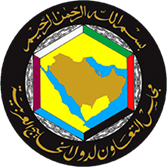
Foundation:
Member States:
Objectives:
Organizational Structure
Work Fields:
Contact Information:
Economic Cooperation Organization (ECO):

Foundation:
The Economic Cooperation Organization (ECO) is an international organization that organizes the governments of seven Asian and three European countries, across an area of 8,620,697 km2, namely Azerbaijan, Afghanistan, Uzbekistan, Iran, Pakistan, Turkey, Turkmenistan, Tajikistan, Kyrgyzstan, and Kazakhstan, with the aim of cooperation in the economic and trade field. The General Secretariat and the cultural department of the organization are located in Tehran, while the economic office is located in Turkey, and the scientific office is located in Pakistan. The Economic Cooperation Organization was founded in 1964 under the name “Regional Cooperation for Development (RCD)”, by Iran, Pakistan and Turkey. The organization was renamed the “Economic Cooperation Organization” in 1985. In 1992, following the collapse of the Soviet Union, the Islamic Republic of Afghanistan and six former Soviet republics, namely the Republic of Azerbaijan, the Republic of Kazakhstan, the Kyrgyz Republic, the Republic of Tajikistan, Turkmenistan and the Republic of Uzbekistan, joined.
Member States:
Main Objective:
• Sustainable economic development of member states. • The gradual removal of trade barriers and the promotion of intra-trade, as the ECO region plays a greater role in the growth of global trade, and the gradual integration of the economies of member states with the global economy. • Developing the transportation and communications infrastructure that connects member states to each other on the one hand, and to the outside world on the other hand. • Economic liberalization and privatization. • Mobilize and utilize the material resources of the ECO region. • Effective use of the agricultural and industrial potential of the ECO region. • Regional cooperation to combat drug abuse and protect the environment, strengthen historical and cultural ties between the peoples of the ECO region, and mutually beneficial cooperation with regional and international organizations. • Sovereignty equality between member states, and achieving mutual benefit. • Linking national economic and development plans to the immediate and long-term goals of the Economic Cooperation Organization to the greatest extent possible. • Make joint efforts to freely access markets outside the ECO area. • Effective use of ECO institutions and cooperative agreements and arrangements with other regional and international organizations, including multilateral financial institutions. • Joint endeavors to develop a coordinated approach to participation in regional and global arrangements. • Achieving a strategy of economic cooperation and exchanges in the educational, scientific, technical and cultural fields.
Organizational Structure:
The headquarters of the General Secretariat of the Economic Cooperation Organization is located in Tehran – Iran, where the General Secretariat includes professional employees and assisting employees who are citizens of member states. Temporary consultants/experts are also appointed to perform special tasks and duties. The Secretariat is responsible for supporting Members and the Organization through Secretariat services, including convening and program support. The Secretariat also participates in initiating, implementing and monitoring ECO regional projects and programmes. It also manages the external relations of the Economic Cooperation Organization.
Council of Ministers:
The Council of Ministers (COM) is the highest policy-making and decision-making body, composed of various foreign ministers or other representatives of ministerial rank. The Council meets at least once a year, alternating between member states.
Council of Permanent Representatives:
The Council of Permanent Representatives is a permanent intergovernmental body of the Economic Cooperation Organization responsible, on behalf of and in the name of the Council of Ministers, for advancing policies established by the Council of Ministers. It also makes the necessary preparations for decision-making by the Council of Ministers. Permanent Representatives/Ambassadors of Member States accredited to the Economic Cooperation Organization are members of the Program and Reconciliation Committee, which meets whenever necessary under the chairmanship of the representative of the Member State who holds the presidency of the Council of Ministers.
Regional Planning Council:
The Regional Planning Council (RPC) is the main technical planning body within the ECO, bringing together the heads of planning organizations in Member States as well as officials and experts from national ministries and sector agencies. The Council holds its annual meetings before the regular meeting of the Council of Ministers, headed by the representative of the member state who assumes the presidency of the Council of Ministers. The meetings are usually held at the ECO headquarters in Tehran. The Regional Planning Council is responsible for preparing work programs to achieve the organization’s goals, in addition to evaluating previous programs. He may also propose to the Council of Ministers the establishment of regional institutions and specialized committees in priority areas of cooperation.
General Secretariat:
The ECO Secretariat is located in Tehran, Iran. The Secretariat is staffed with professional and support staff who are nationals of Member States. Temporary consultants/experts are also contracted to perform special tasks and duties. The Secretariat is responsible for supporting Members and the Organization through Secretariat services, including support for convening meetings and programmes.
Secretary General:
The Council of Ministers shall elect and appoint the Secretary-General of the Economic Cooperation Organization from among the candidates nominated by Member States on the basis of appropriate qualifications and experience, as stipulated in the Statute for the Staff of the Economic Cooperation Organization Secretariat. The Secretary-General, as the chief administrative officer of the Organization, is responsible for all activities of the Organization. He carries out his duties over a non-renewable three-year term.
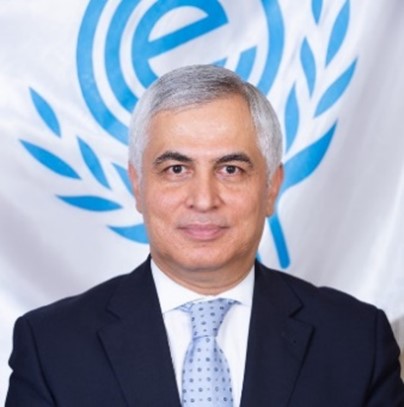
Deputies of the Secretary-General:
There are four Deputy Secretary-Generals in the ECO Secretariat, who are specialists working in areas related to regional economic cooperation.
Work Fields:
The activities of the Economic Cooperation Organization are implemented through the directorates under the supervision of the Secretary-General and his deputies, which study and develop projects and programs of mutual benefit in the following areas: – Trade and investment – Transportation and communications – Energy, minerals and environment – Agriculture, industry and tourism – Human resources and sustainable development – Projects, economic research and statistics
Contact information:
Tel: +98(21) 22831733-4 & 22292066
Email: registry@eco.int
Website: http://www.eco.int
Headquarters: Tehran – Iran
ORGANIZATION Of TURKIC STATES (formerly known as the Cooperation Council of Turkic Speaking States (CCTS)):
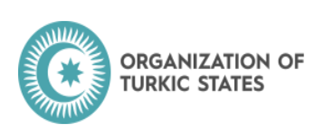
Foundation:
The Organization of Turkic States, whose official name is “Cooperation Council of Turkic-Speaking Countries (CCTS), is an international organization founded on October 3, 2009. Its general secretariat is located in Istanbul. It includes 5 countries: Azerbaijan, Turkey, Kyrgyzstan, Uzbekistan, and Kazakhstan.
Kazakh President Nur Sultan was the first to propose the idea of establishing this organization in 2006, with the aim of forming an entity that unites the Turkish-speaking countries, similar to international blocs such as the European Union and the League of Arab States, and it is expected that Turkmenistan will join the council.
Member States:
Objective:
– Strengthening mutual trust and friendship between the parties.
– Developing common positions on foreign policy issues.
– Coordinating actions aimed at combating international terrorism, separatism, extremism and cross-border crimes.
– Promoting effective regional and bilateral cooperation in all areas of common interest.
– Creating favorable conditions for trade and investment.
– Achieving comprehensive and balanced economic growth, and promoting social and cultural development.
– Expanding the scope of interaction in the fields of science, technology, education, health, culture, sports and tourism.
– Encouraging interaction between the media and other means of communication.
– Promoting the exchange of relevant legal information and enhancing legal cooperation.
Organizational Chart:
The main organs of the Turkic States Organization:
• Council of Heads of State.
• Council of Foreign Ministers.
• Council of Elders.
• Senior Officials Committee.
• The Secretariat.
The main deciding body of the organization is the Council of Heads of State, which is chaired by the country holding the presidency of the office (alternating in alphabetical order). The Republic of Türkiye currently holds the presidency.
The organization’s activities are coordinated and supported by its General Secretariat located in Istanbul.
The Turkic States Organization also serves as an umbrella organization for existing cooperation mechanisms such as the International Turkish Culture Organization (TURKSOY), the Turkic Speaking Countries Parliamentary Assembly (TURKPA), the International Turkish Academy, the Turkish Culture and Heritage Foundation, the Turkish Heritage Foundation, and the Chamber of Commerce and Industry.
President:
Each member state holds the presidency of the OTS for one (calendar) year, rotating according to the English alphabetical order of the official names of the member states.
The President of the Member State holding the Presidency shall serve as the current President. (The current presidential duties are exercised by the Ministry of Foreign Affairs of that country)
During the Istanbul Summit held in November 2021, the Republic of Azerbaijan handed over the presidency of the organization to the Republic of Turkey, until the next summit, which will be held in 2022 in Uzbekistan.

Work Fields:
Cooperation between member states on the following issues:
– Foreign Policy
– Economy
– Transportation
– the customs
– tourism
– education
– media
– Sports and youth
Contact information:
Phone: 0090 212 283 16 44
Email: info@turkkon.org
Website: https://www.turkkon.org/en
Headquarters: Istanbul – Türkiye
WEST AFRICAN ECONOMIC AND MONETARY UNION:

Foundation:
The Economic Cooperation Organization (ECO) is an international organization that organizes the governments of seven Asian and three European countries, across an area of 8,620,697 km2, namely Azerbaijan, Afghanistan, Uzbekistan, Iran, Pakistan, Turkey, Turkmenistan, Tajikistan, Kyrgyzstan, and Kazakhstan, with the aim of cooperation in the economic and trade field. The General Secretariat and the cultural department of the organization are located in Tehran, while the economic office is located in Turkey, and the scientific office is located in Pakistan. The Economic Cooperation Organization was founded in 1964 under the name “Regional Cooperation for Development (RCD)”, by Iran, Pakistan and Turkey. The organization was renamed the “Economic Cooperation Organization” in 1985. In 1992, following the collapse of the Soviet Union, the Islamic Republic of Afghanistan and six former Soviet republics, namely the Republic of Azerbaijan, the Republic of Kazakhstan, the Kyrgyz Republic, the Republic of Tajikistan, Turkmenistan and the Republic of Uzbekistan, joined.
Member States:
Main Objective:
• Sustainable economic development of member states. • The gradual removal of trade barriers and the promotion of intra-trade, as the ECO region plays a greater role in the growth of global trade, and the gradual integration of the economies of member states with the global economy. • Developing the transportation and communications infrastructure that connects member states to each other on the one hand, and to the outside world on the other hand. • Economic liberalization and privatization. • Mobilize and utilize the material resources of the ECO region. • Effective use of the agricultural and industrial potential of the ECO region. • Regional cooperation to combat drug abuse and protect the environment, strengthen historical and cultural ties between the peoples of the ECO region, and mutually beneficial cooperation with regional and international organizations. • Sovereignty equality between member states, and achieving mutual benefit. • Linking national economic and development plans to the immediate and long-term goals of the Economic Cooperation Organization to the greatest extent possible. • Make joint efforts to freely access markets outside the ECO area. • Effective use of ECO institutions and cooperative agreements and arrangements with other regional and international organizations, including multilateral financial institutions. • Joint endeavors to develop a coordinated approach to participation in regional and global arrangements. • Achieving a strategy of economic cooperation and exchanges in the educational, scientific, technical and cultural fields.
Organizational Structure:
The headquarters of the General Secretariat of the Economic Cooperation Organization is located in Tehran – Iran, where the General Secretariat includes professional employees and assisting employees who are citizens of member states. Temporary consultants/experts are also appointed to perform special tasks and duties. The Secretariat is responsible for supporting Members and the Organization through Secretariat services, including convening and program support. The Secretariat also participates in initiating, implementing and monitoring ECO regional projects and programmes. It also manages the external relations of the Economic Cooperation Organization.
Council of Ministers:
The Council of Ministers (COM) is the highest policy-making and decision-making body, composed of various foreign ministers or other representatives of ministerial rank. The Council meets at least once a year, alternating between member states.
Council of Permanent Representatives:
The Council of Permanent Representatives is a permanent intergovernmental body of the Economic Cooperation Organization responsible, on behalf of and in the name of the Council of Ministers, for advancing policies established by the Council of Ministers. It also makes the necessary preparations for decision-making by the Council of Ministers. Permanent Representatives/Ambassadors of Member States accredited to the Economic Cooperation Organization are members of the Program and Reconciliation Committee, which meets whenever necessary under the chairmanship of the representative of the Member State who holds the presidency of the Council of Ministers.
Regional Planning Council:
The Regional Planning Council (RPC) is the main technical planning body within the ECO, bringing together the heads of planning organizations in Member States as well as officials and experts from national ministries and sector agencies. The Council holds its annual meetings before the regular meeting of the Council of Ministers, headed by the representative of the member state who assumes the presidency of the Council of Ministers. The meetings are usually held at the ECO headquarters in Tehran. The Regional Planning Council is responsible for preparing work programs to achieve the organization’s goals, in addition to evaluating previous programs. He may also propose to the Council of Ministers the establishment of regional institutions and specialized committees in priority areas of cooperation.
General Secretariat:
The ECO Secretariat is located in Tehran, Iran. The Secretariat is staffed with professional and support staff who are nationals of Member States. Temporary consultants/experts are also contracted to perform special tasks and duties. The Secretariat is responsible for supporting Members and the Organization through Secretariat services, including support for convening meetings and programmes.
Secretary General:
The Council of Ministers shall elect and appoint the Secretary-General of the Economic Cooperation Organization from among the candidates nominated by Member States on the basis of appropriate qualifications and experience, as stipulated in the Statute for the Staff of the Economic Cooperation Organization Secretariat. The Secretary-General, as the chief administrative officer of the Organization, is responsible for all activities of the Organization. He carries out his duties over a non-renewable three-year term.

Deputies of the Secretary-General:
There are four Deputy Secretary-Generals in the ECO Secretariat, who are specialists working in areas related to regional economic cooperation.
Work Fields:
The activities of the Economic Cooperation Organization are implemented through the directorates under the supervision of the Secretary-General and his deputies, which study and develop projects and programs of mutual benefit in the following areas: – Trade and investment – Transportation and communications – Energy, minerals and environment – Agriculture, industry and tourism – Human resources and sustainable development – Projects, economic research and statistics
Contact information:
Tel: +98(21) 22831733-4 & 22292066
Email: registry@eco.int
Website: http://www.eco.int
Headquarters: Tehran – Iran
ARAB MAGHREB UNION (UMA):

Foundation:
The Organization of Turkic States, whose official name is “Cooperation Council of Turkic-Speaking Countries (CCTS), is an international organization founded on October 3, 2009. Its general secretariat is located in Istanbul. It includes 5 countries: Azerbaijan, Turkey, Kyrgyzstan, Uzbekistan, and Kazakhstan.
Kazakh President Nur Sultan was the first to propose the idea of establishing this organization in 2006, with the aim of forming an entity that unites the Turkish-speaking countries, similar to international blocs such as the European Union and the League of Arab States, and it is expected that Turkmenistan will join the council.
Member States:
Objective:
– Strengthening mutual trust and friendship between the parties.
– Developing common positions on foreign policy issues.
– Coordinating actions aimed at combating international terrorism, separatism, extremism and cross-border crimes.
– Promoting effective regional and bilateral cooperation in all areas of common interest.
– Creating favorable conditions for trade and investment.
– Achieving comprehensive and balanced economic growth, and promoting social and cultural development.
– Expanding the scope of interaction in the fields of science, technology, education, health, culture, sports and tourism.
– Encouraging interaction between the media and other means of communication.
– Promoting the exchange of relevant legal information and enhancing legal cooperation.
Organizational Chart:
The main organs of the Turkic States Organization:
• Council of Heads of State.
• Council of Foreign Ministers.
• Council of Elders.
• Senior Officials Committee.
• The Secretariat.
The main deciding body of the organization is the Council of Heads of State, which is chaired by the country holding the presidency of the office (alternating in alphabetical order). The Republic of Türkiye currently holds the presidency.
The organization’s activities are coordinated and supported by its General Secretariat located in Istanbul.
The Turkic States Organization also serves as an umbrella organization for existing cooperation mechanisms such as the International Turkish Culture Organization (TURKSOY), the Turkic Speaking Countries Parliamentary Assembly (TURKPA), the International Turkish Academy, the Turkish Culture and Heritage Foundation, the Turkish Heritage Foundation, and the Chamber of Commerce and Industry.
President:
Each member state holds the presidency of the OTS for one (calendar) year, rotating according to the English alphabetical order of the official names of the member states.
The President of the Member State holding the Presidency shall serve as the current President. (The current presidential duties are exercised by the Ministry of Foreign Affairs of that country)
During the Istanbul Summit held in November 2021, the Republic of Azerbaijan handed over the presidency of the organization to the Republic of Turkey, until the next summit, which will be held in 2022 in Uzbekistan.

Work Fields:
Cooperation between member states on the following issues:
– Foreign Policy
– Economy
– Transportation
– the customs
– tourism
– education
– media
– Sports and youth
Contact information:
Phone: 0090 212 283 16 44
Email: info@turkkon.org
Website: https://www.turkkon.org/en
Headquarters: Istanbul – Türkiye




